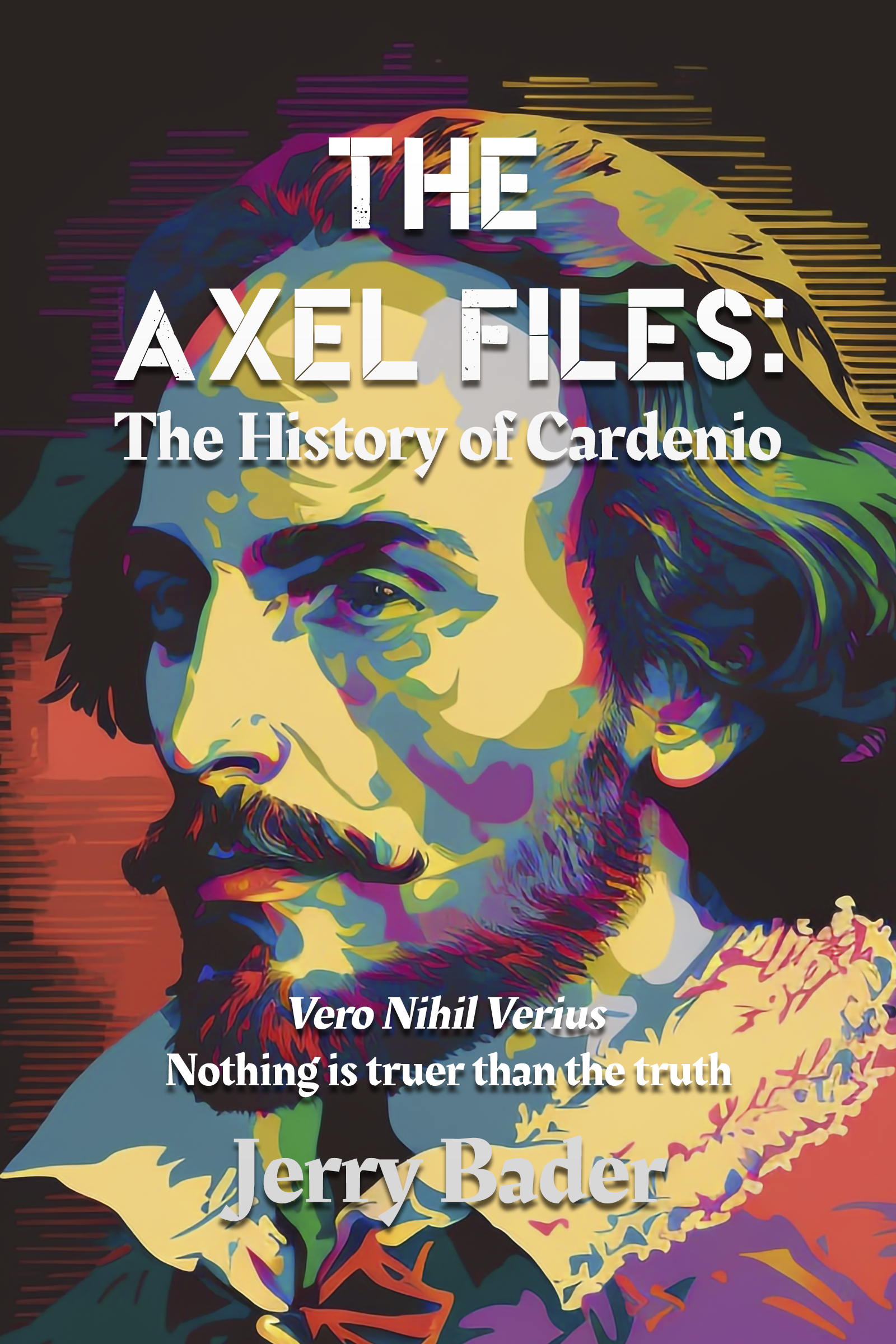
The Axel Files: The History of Cardenio
Vero Nihil Verius
People find comfort in the histories that connect them to our combined continuum. It provides purpose to our fleeting existence. Adopted children invariably need to know who they are, where they came from, and how they are connected to their personal stories. And so, English artist Alice Bulbeck and her twin brother Edward approach Axel Webb to find a lost Shakespeare play entitled The History of Cardenio. The play, performed only once for James I, has been lost for four hundred years. It is the only known play accredited to William Shakespeare that has never been published. The question is, why? Controversy has surrounded the authorship of the Shakespeare plays ever since they were written four centuries ago. Many contemporary dramatists have been cited as the true author of the plays; one such man is Edward de Vere, the Earl of Oxford, formerly known as Viscount Bulbeck. Why are orphaned twins, born to a Shoreditch bag lady known as Mad Alice, named Edward and Alice Bulbeck. It is the same question the Bulbeck twins ask investigator Axel Webb to answer. If Axel can find Cardenio, he’ll discover the answer.
But history is not truth: history is a sloppy goulash of fact, fable, and self-interest. And those whose interest is tarnished by finding the truth will do anything to stop it from coming into the open. If Oxford can be proven to be the author of Cardenio: it would cost Theo Payne-Foster, CEO of Payne-Foster Publishing, a fortune. Payne-Foster will do anything to stop that from happening. His main obstacle, the man he must stop, is Axel Webb.
Genre: FICTION / Mystery & Detective / HistoricalThe Invitation
“A great portrait is always more a portrait of the painter than of the painted.”
- Samuel Butler
The invitation was hand-delivered, unusual for a gallery opening, but that was not the only odd thing. The envelope was expensive and addressed in an artistic calligraphic hand-lettered style. The card inside featured a printed, coloured abstract portrait of an Elizabethan aristocrat. Across the bottom of the canvas, sprawled in a Ralph Steadman attack of black paint, was the single word, Oxford. The announcement read, “An Exhibition of Expressive Portraits by Lady Alice, Viscountess Bulbeck.” All fairly standard for a gallery invite, except maybe for the Viscountess Bulbeck part. However, on the back of the card was a handwritten note in the same calligraphic style as the envelope: "Dear Mr. Webb - We need to talk! - Alice,” I was intrigued, despite knowing all too well the trouble I can get into when dealing with a Countess.
The Viso Gallery is located in The Distillery District, only a few doors from where I have my offices. Occasionally, I’ll pop in on my way home; if I see a piece I like, I may even buy it. Over the years, I’ve collected about a dozen works from young aspiring artists that no one has ever heard of, and probably, no one ever will, but I like their work, and that's all that counts.
The gallery itself is unusual. Rather than the de rigueur stark white-painted walls and polished concrete floors, The Viso resembles the inside of a crumbling, ancient Italian villa. The walls of the various rooms are plastered in rough ochre-toned cement and brick that contrasts with the brightly coloured abstracts of Elizabethan playwrights that adorn the walls.
| Language | Status |
|---|---|
|
French
|
Translation in progress.
Translated by marie helene coulin
|
|
Portuguese
|
Already translated.
Translated by ANDRE DIOGO WEBER 2
|
|
Spanish
|
Already translated.
Translated by Antonio de Torre
|
|
|
Author review: Antonio does an excellent job and is easy to work with. He is extremely professional and I highly recommend him. - Jerry Bader, Author and Screenwriter |